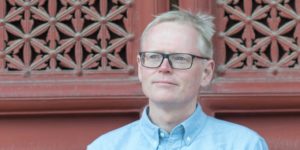
China’s society is changing fast, and youngsters are adjusting their attitudes on how to organize their lives. Marketing expert Ashley Dudarenok looks at those changes for Time. Individualism and self-love are some of the new features. “When traditional markers of success like marriage and homeownership become structurally inaccessible for many, young people are forced to redefine what a ‘good life’ means,” Dudarenok says.
Time:
The mentality is just one example of how young people in China are reacting and adapting to a fast-changing and often atomizing urban society. Ashley Dudarenok, who runs a China- and Hong Kong-based consumer research consultancy, tells TIME that these trends among China’s Gen Z are a “rational response” to a hyper-competitive job market, stagnant wages, and rising costs of living.
“When traditional markers of success like marriage and homeownership become structurally inaccessible for many, young people are forced to redefine what a ‘good life’ means,” Dudarenok says. “If they cannot afford a house, they can at least afford to treat themselves to a nice meal or a Pop Mart toy that brings them joy.”…
“Rapid urbanization and the rise of the digital economy have created a new social landscape,” says Dudarenok. The Chinese government has taken steps to regulate AI companions amid global concern over AI-fueled psychotic delusions and self-harm. The move, Dudarenok adds, is “recognition that these new forms of companionship and social interaction are becoming a permanent feature of Chinese society.”…
The individualism taking form among Chinese youth is different from the “rugged, self-reliant individualism often associated with the West,” Dudarenok says. “Chinese youth are not necessarily breaking from their families or culture,” but “they are carving out more space for personal expression and emotional needs within those structures.”
Ashley Dudarenok is a speaker at the China Speakers Bureau. Do you need her at your meeting or conference? Do get in touch or fill in our speakers’ request form.
Are you looking for more marketing experts at the China Speakers Bureau? Do check out this list.

